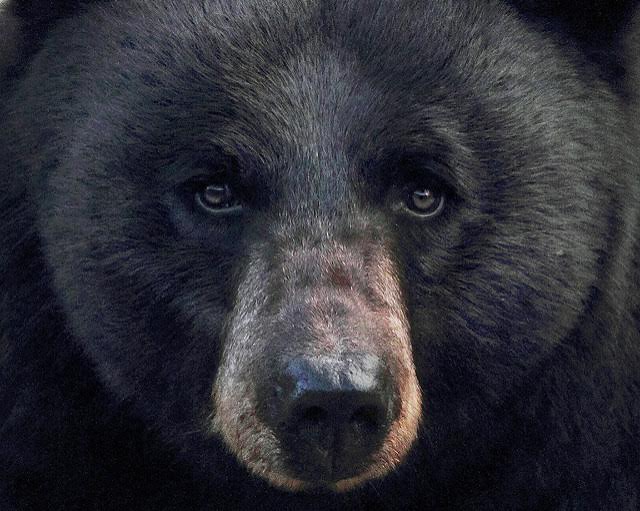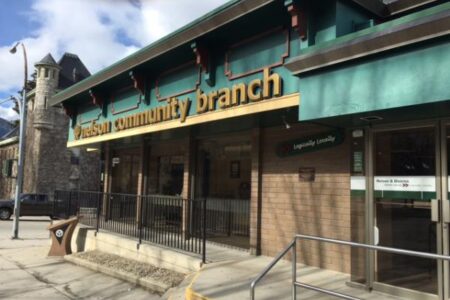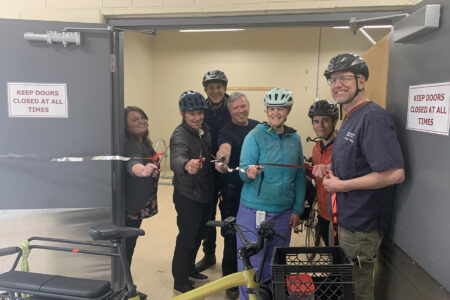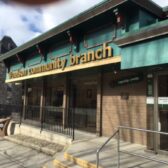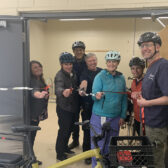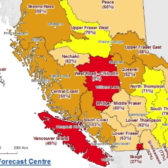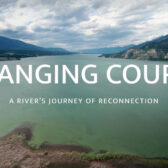New partnership program expected to further reduce bear and human conflicts in the city
Call it the bear necessities of life.
A local group is hoping to reduce the human conflict with black bears and grizzly bears in the Central Kootenay region, including inside the city of Nelson.
Towards that end, representatives of the Regional District of Central Kootenay and the Human/Bear Conflict Working Group (HBCWG) asked the city for funding to purchase a large amount of bear resistant garbage bins to be distributed to all WildSafe BC coordinators in the RDCK.
On Monday city council approved participation in the Human/Bear Conflict Reduction Project by pledged a contribution to the maximum of $25,000 on a cost recovery basis towards the project — meaning that the money collected for sale of the bins is provided back to the city. The budget total for the program itself to operate is $22,763.43.
The HBCWG began a pilot project in cooperation with the BC Conservation Foundation (BCCF) in 2015 and 2016. The pilot included the purchase of bear resistant garbage bins which were distributed to residents in the RDCK since 46 per cent of human/bear conflict reports — 1,888 out of 4,076 reports — from 2010 to 2016 involved unsecured garbage attractants.
Under the terms of the project the bins are to be sold to private residents based on necessity, while a manufacturer of certified bear resistant bins has been located to supply 100 bins.
Locations for the garbage bins distribution will be prioritized by conservation officers and WildSafe BC coordinators based on statistics on previous and ongoing human and bear conflicts in residential areas compiled by conflict call centres.
In the previous two years, the cost share price was $132 for 32-gallon bins and $197 for 64-gallon bins. According to the HBCWG, in certain areas such as RDCK areas E and F, demand for the bins exceeded the supply.
“A supply of bear resistant containers can fill the gap in the small percentage of homes that don’t have the luxury of safe storage of waste,” noted the HBCWG report.
The HBCWG will provide management and administration of the program, while the B.C. Conservation Foundation will direct WildSafeBC coordinators to distribute the bins. Conservation officers will store and distribute the bins to WildSafeBC coordinators.
According to statistics, in 2016 47 bears were killed in West Kootenay communities due to “preventable garbage attractant issues.” As well, a large number of other bears were destroyed because they were causing safety issues in residential areas due to “becoming highly conditioned to human foods.”
The report stated that, “it only takes one residence in a populated area with a bear attractant issue to cause human/bear conflict; and therefore a public safety concern for the entire community.”
According to a city staff report the program “promotes both wildlife conservation and public safety. This program also takes a collaborative approach to an issue impacting the Central Kootenay region.”
The staff report noted the project aligned with the city’s Path to 2040 Sustainability Strategy goals and objectives “whereby council has committed to conserve indigenous plants and wildlife in natural areas and parks where local ecosystems and biodiversity are to be protected and enhanced.”



